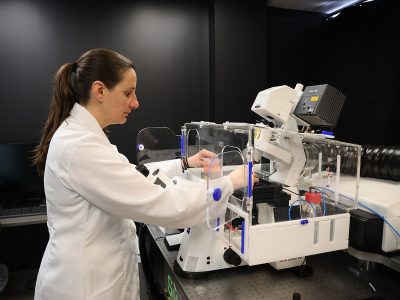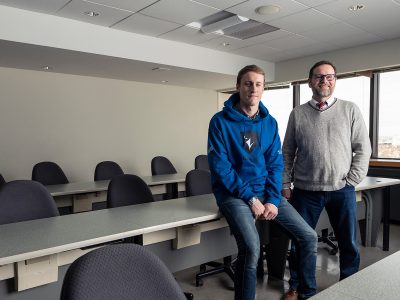By Dan Rubinstein
In the early 1990s, when Tammie Ricci enrolled in Carleton to work toward a master’s degree in psychology, the university’s reputation for accessibility, including its unique 24/7 Attendant Services Program and academic accommodation policies, were important considerations.
“The tunnels were amazing,” says Ricci, who went on to earn a PhD at York University and become a clinical psychologist now running her own practice in Ottawa. “For a person in an electric wheelchair, to be able to get from one building to another in snowy cold weather was an incredible thing.
“To meet other people, people like me who had disabilities and dreamed of becoming lawyers, professionals, businessmen and women, that was a really unique experience. In an accessible environment, my disability wasn’t as prominent. I could focus on being a student like everybody else.
“More than receiving a master’s degree, I learned the importance of believing in myself, dreaming big, and realizing that I could accomplish my goals, even with a disability.”
Ricci was a client at Carleton’s Paul Menton Centre (PMC), which coordinates support services for students with disabilities and celebrated its 25th birthday in 2015.
The PMC, which serves more than 2,000 students a year, has played a pivotal role in Carleton’s successful effort to become one of the most accessible universities in Canada.
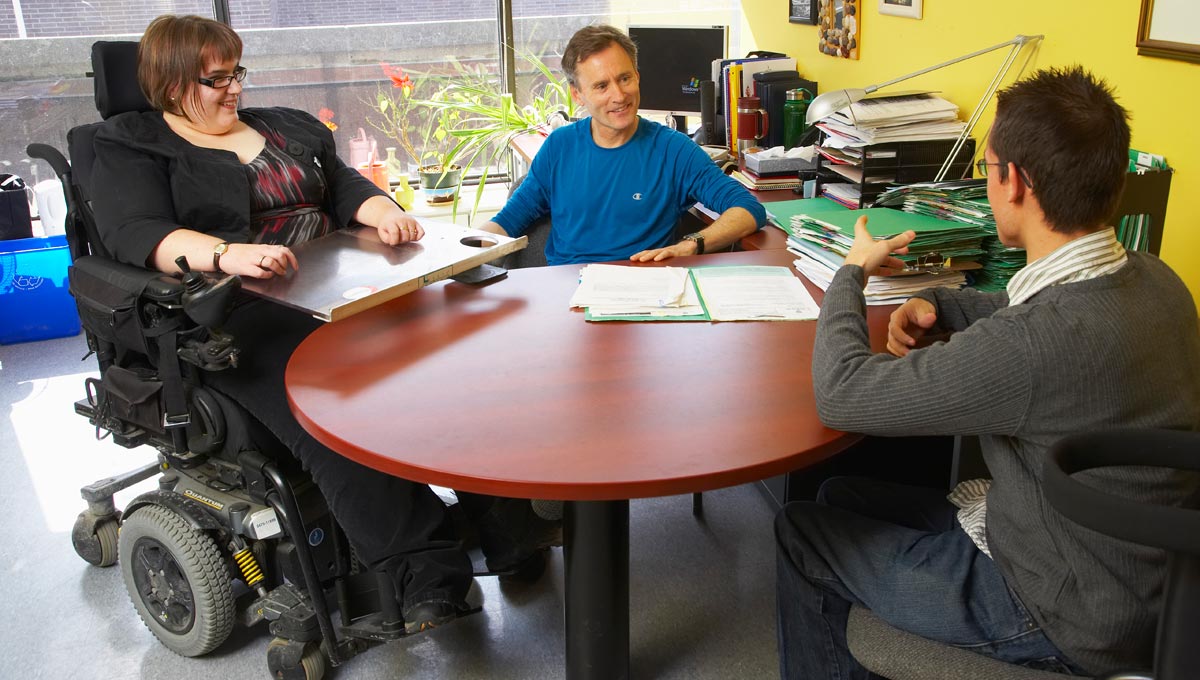
Larry McCloskey (centre), director of the Paul Menton Centre for Students with Disabilities (PMC)
Alongside initiatives such as READ (Research, Education, Accessibility and Design), which fosters disability research and brings together faculty and staff from all disciplines to work collaboratively on solutions to accessibility issues, the PMC has helped improve the seven-year graduation rate for students with disabilities at Carleton to two per cent higher than the general population — a 20 per cent increase in the past two decades.
Carleton’s approach to helping students with disabilities has evolved over the years. Initially, 90 per cent of PMC clients had physical disabilities; today, more than 90 per cent have non-visual disabilities, such as mental health and learning disabilities.
And the university is now on the cusp of an even bigger change. Beyond supporting students during their studies with one-on-one tutors, volunteer note-takers and adaptive-equipment loans, Carleton wants to enhance its employment and entrepreneurship efforts, and give graduates with disabilities more opportunities to find meaningful well-paid work and realize their potential, just like Tammie Ricci.
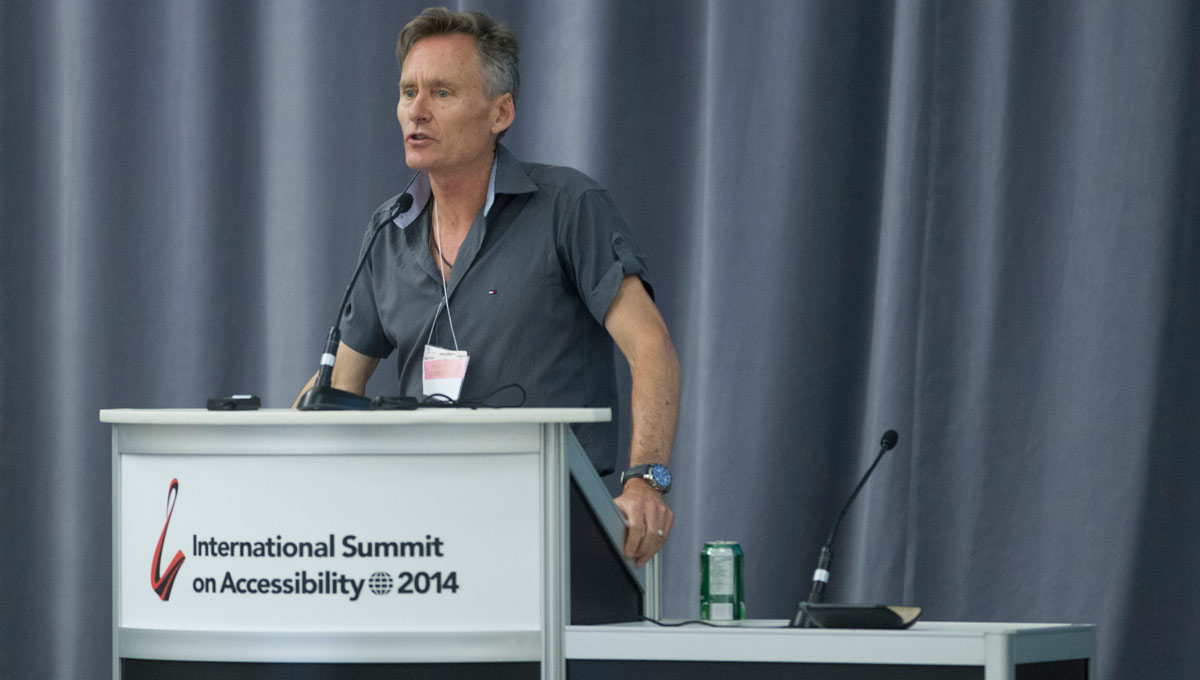
Despite a shift in societal attitudes, university graduates with disabilities are twice as likely as their peers to be unemployed or underemployed, says Larry McCloskey, longtime director of the PMC.
“It used to be thought that students with disabilities had a tougher time in the labour market because they didn’t graduate,” he says, “but we’ve shown that’s not true.
“Even though we’ve progressed so well with our graduation rate, we haven’t done as well in terms of opportunities post-graduation.”
What’s more, there’s a compelling business case to be made for hiring people with disabilities. Studies show that employees with disabilities stay in the same job longer, have lower rates of absenteeism and better safety records.
In other words, says McCloskey, don’t hire somebody with disabilities as a charitable act. Do it because you’ll get an engaged and productive employee, which is good for your bottom line.
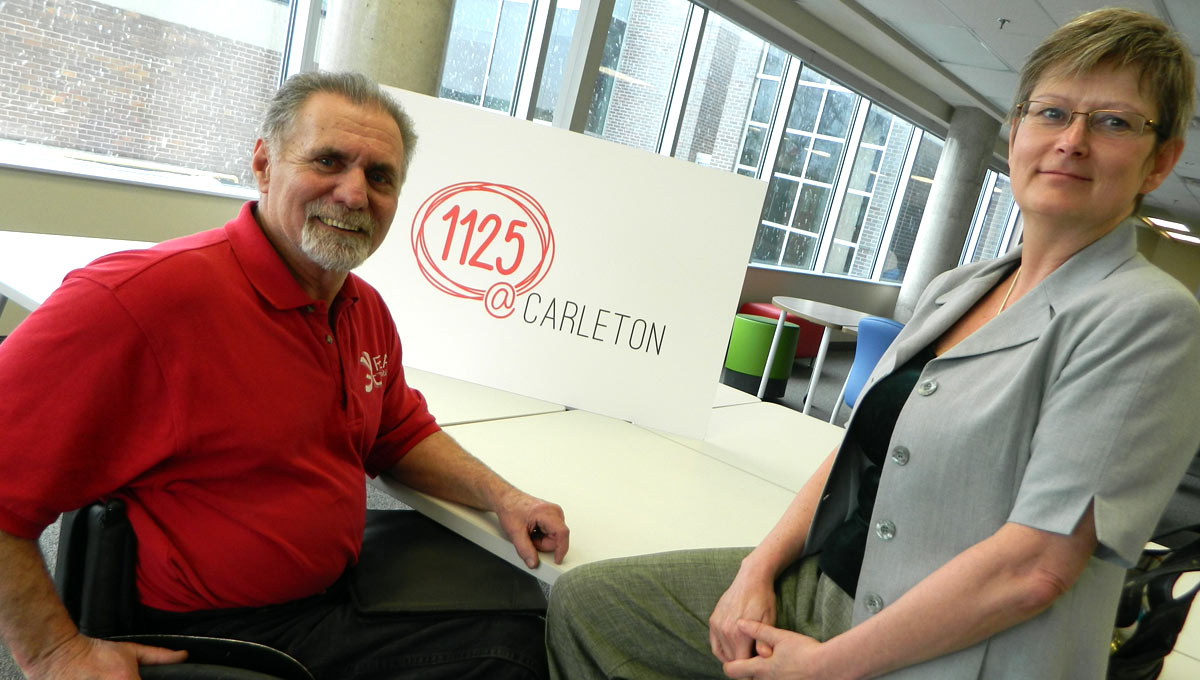
Dean Mellway (left), director of Carleton’s READ Initiative | Photo: Kristy Strauss
“There often is no accommodation cost, or much less than expected,” he adds. “If someone is capable of exceeding the job requirements and can positively impact your bottom line, minor accommodation costs will become insignificant to hiring.”
This business case, promoted by people such as a David Onley, Ontario’s former lieutenant-governor and the only person with a disability to hold this post, includes the fact that people who work pay taxes and can contribute to their communities financially, not to mention the many other positives that flow from heightened self-esteem.
“We are gradually normalizing disability,” says McCloskey, “in a way that’s never been done.”
Carleton’s new focus on career services and entrepreneurial training for students with disabilities will be championed by READ, says the acting director of the five-year-old initiative, Dean Mellway, a former gold medal winning Paralympic athlete.
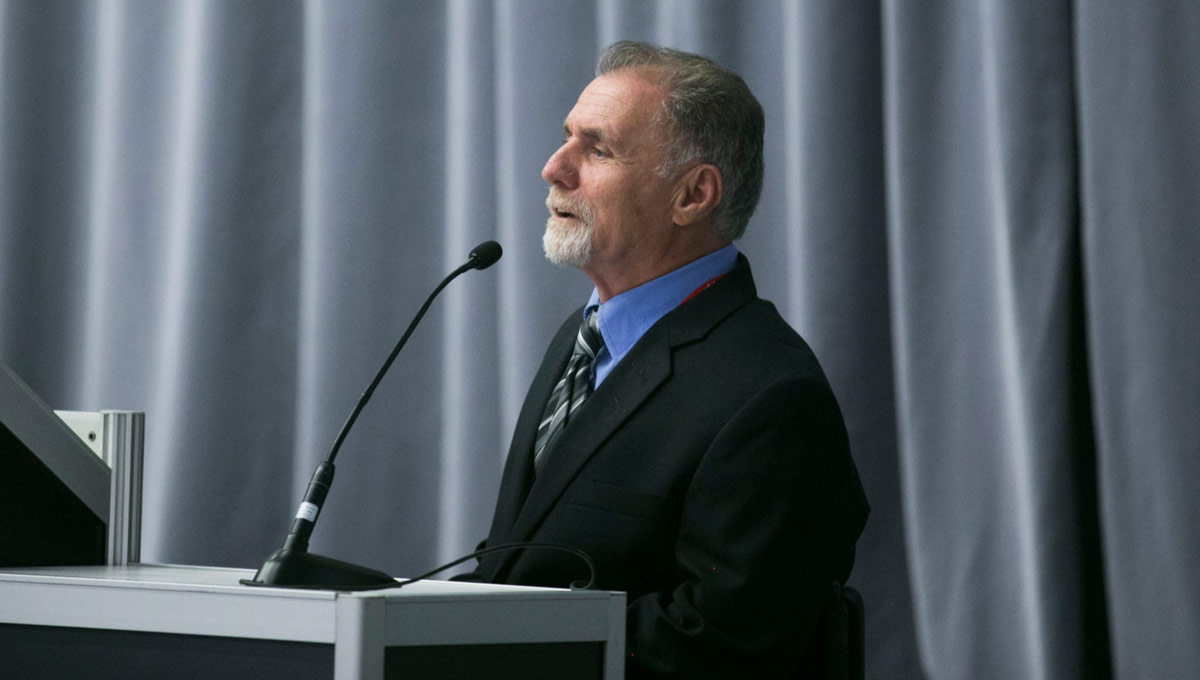
By tapping into best practices at other institutions and calling upon its network of researchers to explore important questions, READ will guide the development of new programs and link investment to outcomes to ensure all new programming actually helps graduates find meaningful work.
“This is an extension of the university’s mandate,” says Mellway. “Employment is one of the most significant issues we face.
“Part of what we’d like to do is to inspire other places as we get going, to effect change at other universities and colleges across Canada.”
For the past three years, READ — which is funded by the PMC and Carleton’s Faculty of Engineering and Design — has been working with United Way Ottawa’s Employment Accessibility Resource Network (EARN) to increase career opportunities for students with disabilities.
Carleton has held as series of events, including a workshop on employment opportunities in the federal government, a workshop for employers held cooperatively with the Conference Board of Canada, and a pilot project to provide students with a chance to meet one on one with major employers in the EARN network including the City of Ottawa, TD Bank, CSIS, Scotiabank and Hydro Ottawa. More than 70 students participated in a speed interviews as a first step in the hiring process.
“All of these events were highly successful,” says Mellway, “and we are looking to repeat them in the next academic year.”
In 2014, Carleton successfully launched a disability studies minor, focused on advocacy and human rights. The READ initiative complements that program, focusing on accessibility and engaging business, computer science, architecture, engineering and design thinking to help find solutions to individual and systemic accessibility issues.
“It’s more than advocacy,” says McCloskey. “It’s about technical solutions.”
READ also supports student entries into the annual Innovative Designs for Accessibility competition, a partnership between the Council of Ontario Universities and provincial government that seeks innovative, cost-effective and practical solutions to accessibility-related barriers in the community. Carleton students win awards in the contest every year.
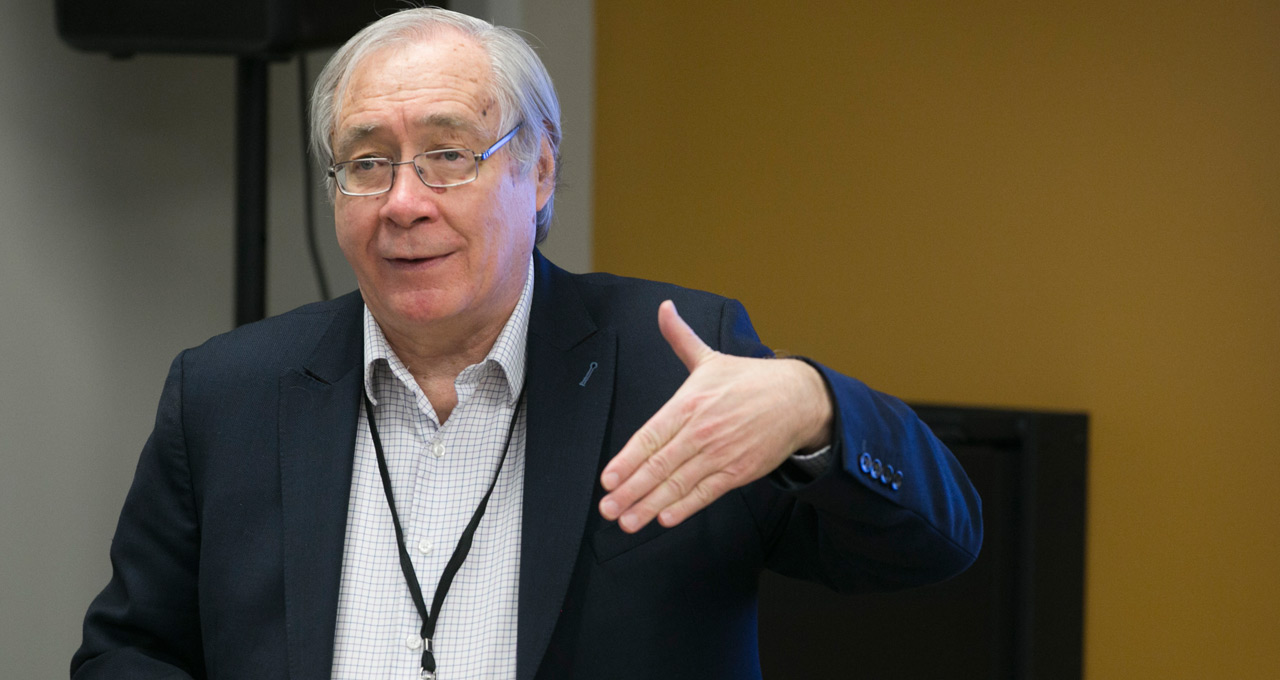
In addition to employment, the PMC plans to leverage Carleton’s entrepreneurial expertise — such as the university’s award-winning Lead To Win business incubator and Technology Innovation Management (TIM) program — to help students with disabilities create their own companies.
People with disabilities often develop a knack for details, which they need to master to overcome the daily challenges they face, as well as the resilience and determination essential to an entrepreneurial mindset.
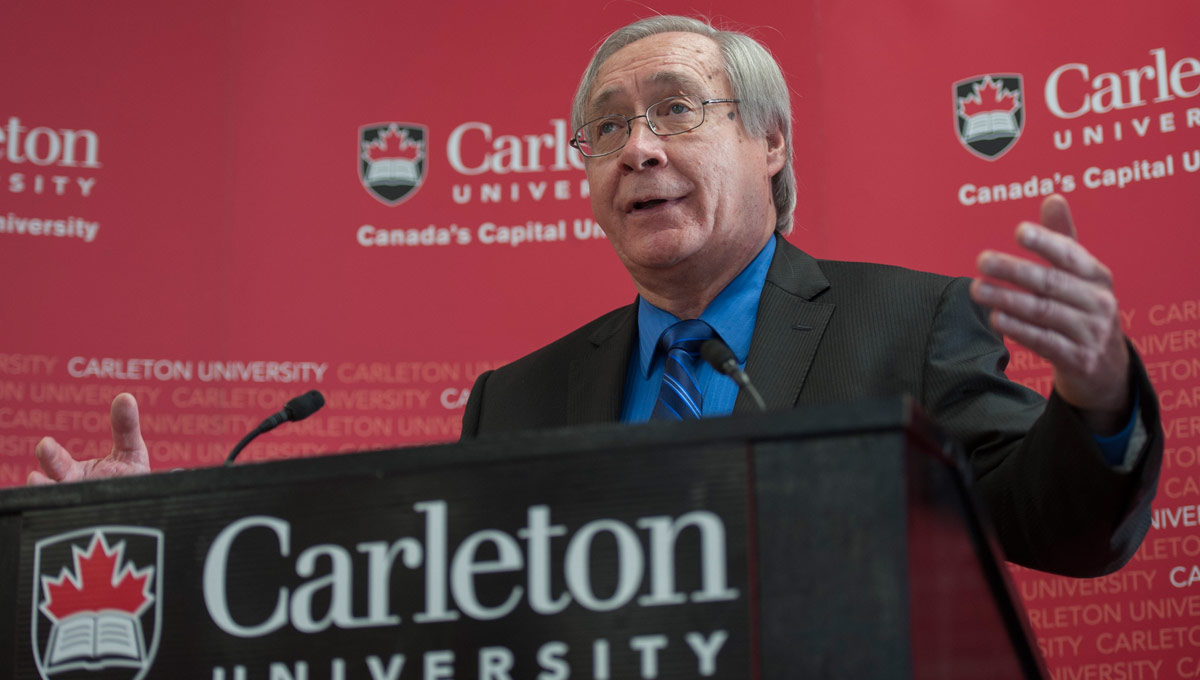
TIM director and Sprott School of Business professor Tony Bailetti
“The key to the success of Lead To Win is that we have never isolated people,” says incubator founder and TIM director Tony Bailetti, a professor at the Sprott School of Business. “Engineers, business students and people with an arts background work together in ways that make sense. We want to give students with disabilities the support they need to be able to join our entrepreneurial ecosystem.”
Several students stand out as excellent role models: Paul Safi, who is legally blind, has launched a company called ReAble that builds financial management apps and other tools for people with special needs; it was one of 10 businesses recently accepted into the renowned startup incubator Techstars and is joining an accelerator program in Cape Town, South Africa.
Elias Majic, who is in a wheelchair and has limited mobility, developed a language learning software program called Ottercall while enrolled in TIM.
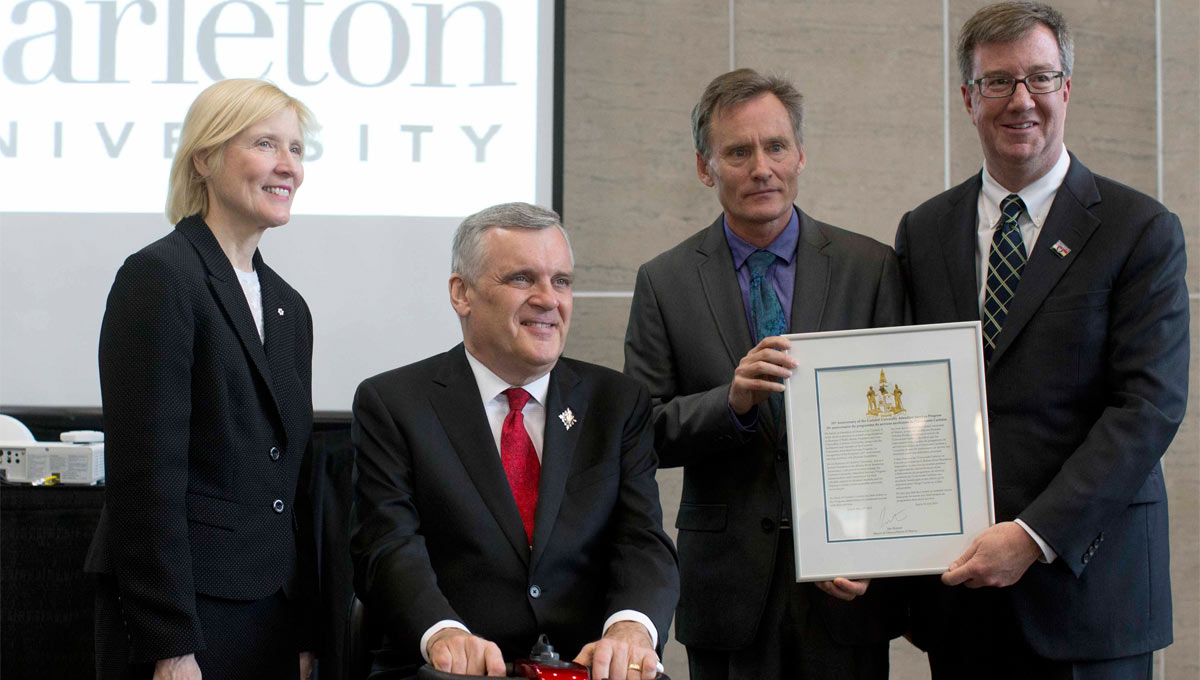
(From left to right) Carleton University president and vice-chancellor Dr. Roseann O’Reilly Runte, READ initiative’s honorary patron and former Ontario lieutenant-governor David Onley, director of the Paul Menton Centre for Students with Disabilities Larry McCloskey and Ottawa Mayor Jim Watson at the Attendant Care Services 25th Anniversary, May 2013
Buoyed by the support he received at the PMC, Quayce Thomas, a fourth-year architecture student at Carleton with bipolar disorder, has built an “accountability network” software program for people with mental illness. It alerts five friends when you fail to meet goals you have set and risk falling into depression.
“When you’re facing a challenge and are in an environment where everybody wants to provide the support you need to get through, it becomes exciting,” says Thomas, who has applied for entrance into Lead To Win. “In the right environment, you can overcome anything.”
“It is deeply gratifying to see that the problem of unemployment for students with disabilities is being addressed by Carleton University in such a proactive and positive way,” writes former Ontario lieutenant-governor David Onley, who is the READ initiative’s honorary patron. “Successful entrepreneurship fundamentally requires excellent problem solving skills, something that students with disabilities consistently exhibit in their lives.”
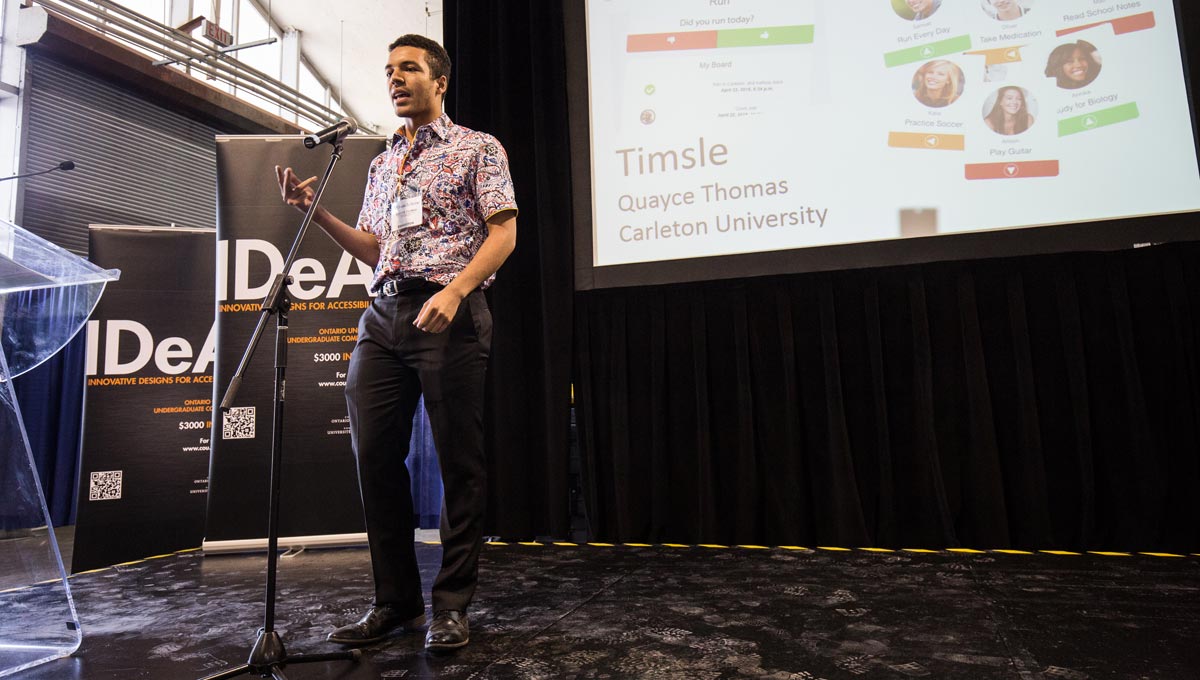
Thursday, April 7, 2016 in Accessibility, Entrepreneurship
Share: Twitter, Facebook
